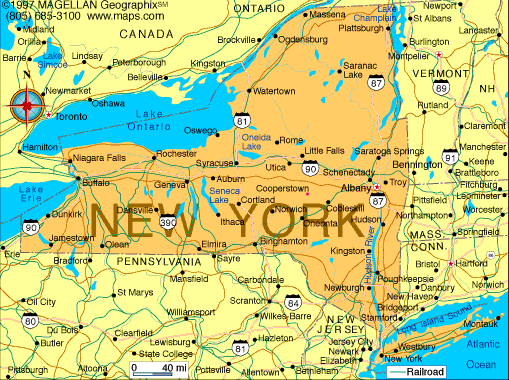 Members of the Seneca Nation of Indians in western New York state voted up a referendum Nov. 3 giving tribal leaders approval to move towards setting up a medical marijuana business on their territories. The measure passed by a vote of 448-364, giving the Seneca Nation Council the power to draft laws and regulations allowing the manufacture, use and distribution of cannabis for medical purposes. "A decision on our Nation's path of action on medical cannabis is far from made," cautioned Seneca President Maurice A. John Sr. in comments to the Buffalo News. "But now, having heard from the Seneca people, our discussions and due diligence can begin in earnest."
Members of the Seneca Nation of Indians in western New York state voted up a referendum Nov. 3 giving tribal leaders approval to move towards setting up a medical marijuana business on their territories. The measure passed by a vote of 448-364, giving the Seneca Nation Council the power to draft laws and regulations allowing the manufacture, use and distribution of cannabis for medical purposes. "A decision on our Nation's path of action on medical cannabis is far from made," cautioned Seneca President Maurice A. John Sr. in comments to the Buffalo News. "But now, having heard from the Seneca people, our discussions and due diligence can begin in earnest."
There is clearly enthusiasm for the idea in Seneca country. "I think this is an opportunity for the Senecas to pursue staying on the front end of something that's an emerging industry," said John Kane, a Mohawk and local radio host who lives on the Seneca's Cattaraugus territory. He told Buffalo's WGRZ: "There's also the opportunity for revenue, people are often looking at Native territories and say well all you guys do is gas stations and cigarettes." But he also said he understands why some are suspect of the proposal. "If there's anything that I've seen in terms of concerns, it's really has been with around how much this would cause confrontation with the federal government and...with the state government."
The Seneca are one of the Six Nations of the Iroquois Confederacy, or Haudenosaunee, whose traditional lands stretch across upstate New York into Canada and Pennsylvania. The "Keepers of the Western Gate," the Seneca live along Lake Erie and the Niagara River, now on two reservations or "territories"—Allegany and Cattaragus. The tribe runs three gambling casinos, including the Seneca Buffalo Creek casino in Buffalo. They have asserted their right to sell tax-free tobacco as a sovereign power—leading to repeated confrontations with New York state authorities. But the casino economy has sparked an anti-Indian backlash from many white residents of upstate New York. There have also been local initiatives by the Iroquois peoples to restore white corn and other indigenous crops, and move back towards food self-sufficiency. An obstacle to this, however, is the Six Nations' diminished territory. Seneca lands were greatly reduced in the 1779 campaign of Gen. John Sullivan, dispatched by George Washington to break the Iroquois Confederacy despite its official stance of neutrality in the American Revolution. Land recovery efforts have also bred a backlash from white land-owners.
It will be interesting to see if the cannabis stigma will now be exploited to rally upstate conservatives against the Seneca Nation's efforts at economic progress.
Cross-post to High Times
Graphic: InfoPlease







Recent comments
2 weeks 1 day ago
2 weeks 2 days ago
5 weeks 2 days ago
6 weeks 2 days ago
10 weeks 2 days ago
14 weeks 19 hours ago
18 weeks 1 day ago
18 weeks 6 days ago
28 weeks 6 days ago
32 weeks 6 days ago